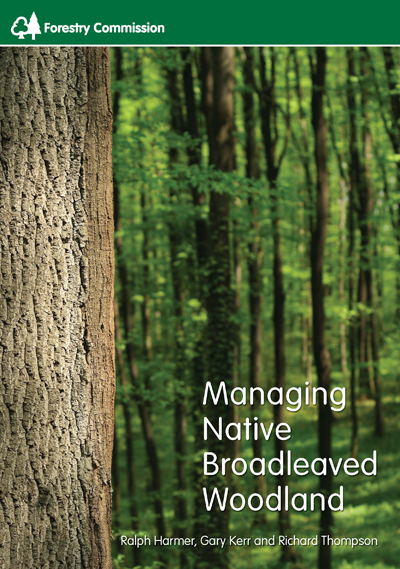UK: New book for woodland managers
23.09.10
 A handbook designed to help the owners and managers of native broadleaved woodland get the most from their trees has been published by the Forestry Commission.
A handbook designed to help the owners and managers of native broadleaved woodland get the most from their trees has been published by the Forestry Commission.
Written by Ralph Harmer, Gary Kerr and Richard Thompson of Forest Research, the scientific research and technical development arm of the Forestry Commission and entitled Managing Native Broadleaved Woodland, the handbook was written to provide advice that will help managers understand and manage their woodland. A wide variety of subjects is covered, from identifying woodland communities and management planning, to silvicultural techniques, nature conservation and vegetation management, including the use of grazing animals.
The background and principles of each topic are explained and case studies are used throughout. Interactions between site characteristics and historic management are also considered in relation to future management options. The handbook also highlights the questions that managers should ask when considering management options for their woodlands which take account of location, site characteristics and objectives.
Related links:
UK: Ancient Tees Valley's ‘rainforest’ survey
18.05.10
![]() The Forestry Commission is backing a root and branch survey to assess the condition of the Tees Valley’s precious ancient woodlands.
The Forestry Commission is backing a root and branch survey to assess the condition of the Tees Valley’s precious ancient woodlands.
UK: Keeping invaders out of the Forest
15.12.09
 The New Forest is one of the most important areas for wildlife in Western Europe but its rivers and wetlands are threatened by an invasion of non-native plants. The battle lines are drawn and Catherine Chatters describes how she is taking up the fight.
The New Forest is one of the most important areas for wildlife in Western Europe but its rivers and wetlands are threatened by an invasion of non-native plants. The battle lines are drawn and Catherine Chatters describes how she is taking up the fight.
UK: Britain’s forests reveal their secrets
08.09.09
 Britain’s woodlands have gone through a tumultuous past and now look set to become a vital part of the future. A new survey by the Forestry Commission of the estimated 2.75 million hectares (or 12 per cent of the land area) of woodland in Britain will form the most comprehensive record of them ever.
Britain’s woodlands have gone through a tumultuous past and now look set to become a vital part of the future. A new survey by the Forestry Commission of the estimated 2.75 million hectares (or 12 per cent of the land area) of woodland in Britain will form the most comprehensive record of them ever.